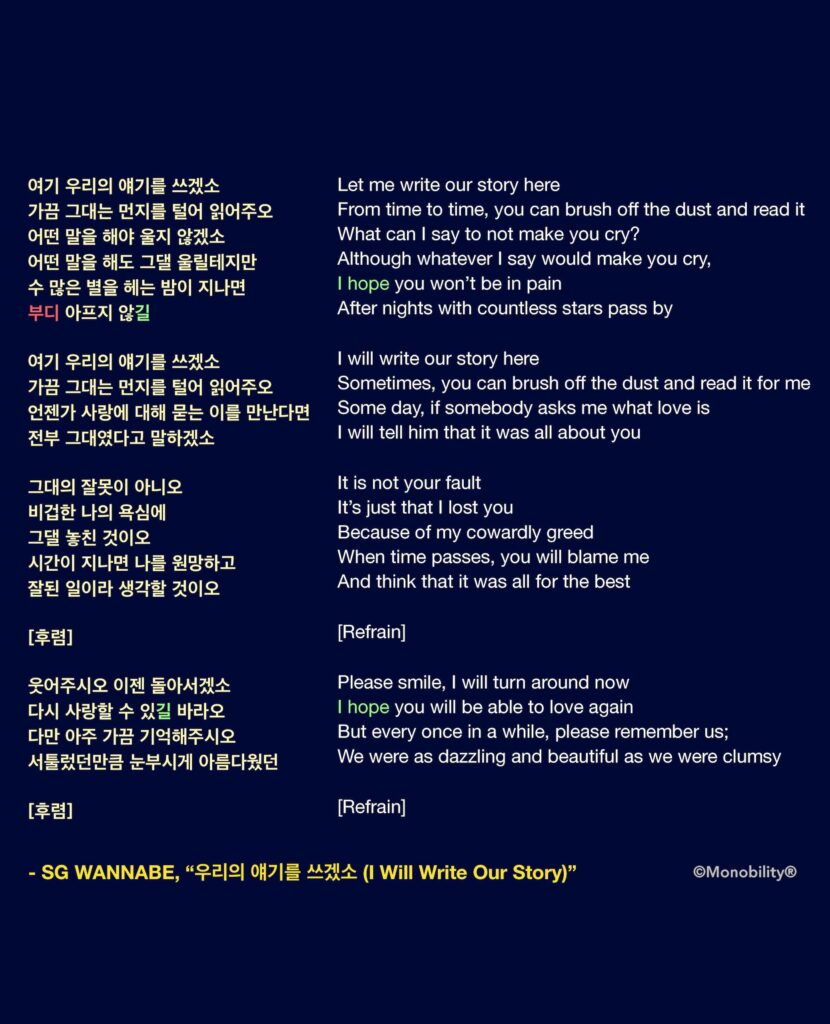시카고 타자기 (Chicago Typewriter, 2017) is one of those hidden masterpieces, oddly underrated for no obvious reason. With its backdrop switching between the glamorous present and the darkest times of Korean history (and of modern world’s) in the 1930’s, this hidden gem of K-drama has all the amazing elements that touch any Korean soul. Breaking traditional genres by combining fantasy/thriller/history/romance/comedy, its mind-boggling storyline also allows today’s public to get a glimpse of how intellectuals and leaders thought, struggled and acted in Korea’s Independence and Resistance Movement during the Japanese Occupation for 35 years. The drama shines with awesome performance by the main cast, including a globally acclaimed actor 유아인.
But what made me watch all its episodes within just days was the OST – SG Wannabe’s “우리의 얘기를 쓰겠소 (I Will Write Our Story).” In the lyrics below, you can find a typical noun form of a verb ending for expressing a wish: -길. -길 is contraction (short form) of -기를. Normally it is followed by a main verb such as 바라다 (to wish), 빌다 (to pray), or 원하다 (to want).
- 다시 사랑할 수 있길 바래요 = I hope you will find a new love.
- 새해에는 다들 운수 대통하고 건강하길 바란다 = I wish everyone great fortune and good health in the New Year! (This is how typical Koreans (parents or grandparents) make a New Year’s wish for their children, after they bow to them with respect in a traditional style – 세배.)
You can also start your wish with an adverb 부디. This one word makes your wish sound definitely sincere and earnest.
- 부디 잘 살기를 빌어요 = I pray that you will live well.
- 부디 아프지 않길 바란다 = I sincerely hope that you won’t be in pain.
Please note that the last one has a negative form of 아프다 (be in pain, be hurt): 아프지 않다 => 아프지 않기를 => 아프지 않길. And 않길 is pronounced as 안킬, because of Consonant Assimilation: the bottom consonant ㅎ of 않 and the top consonant ㄱ of 길 collide with each other, resulting in the ㅋ sound.
Listen to SG Wannabe pronounce “부디 아프지 않길” in the 6th line below (@0:46). It clearly sounds as 안킬, doesn’t it? Is Korean too tough for you? ^^ No worries. Consonant Assimilation is not just for the Korean language, but is a universal phonological process that happens across All human languages!^^

Check out our Facebook for much more:



